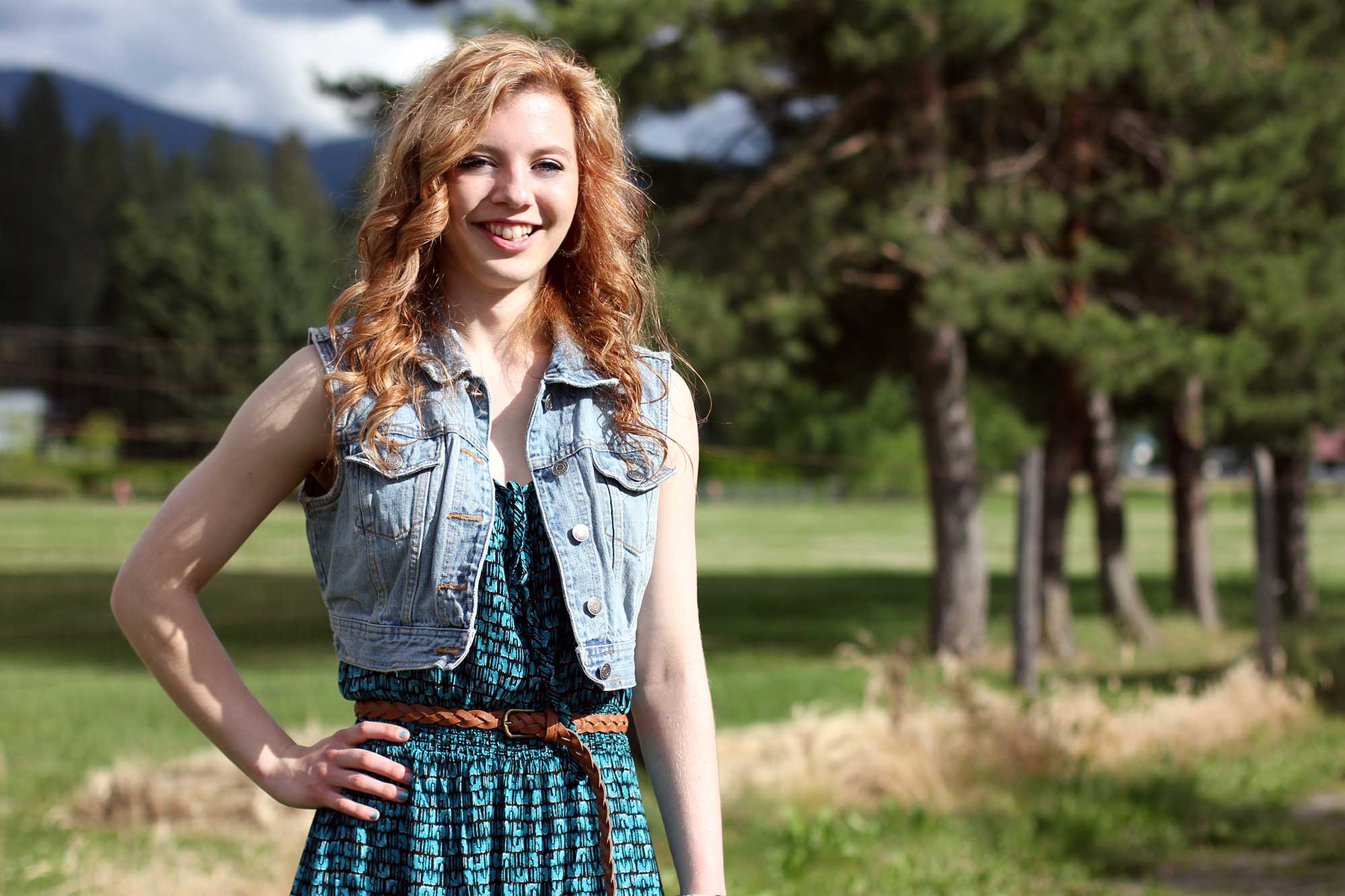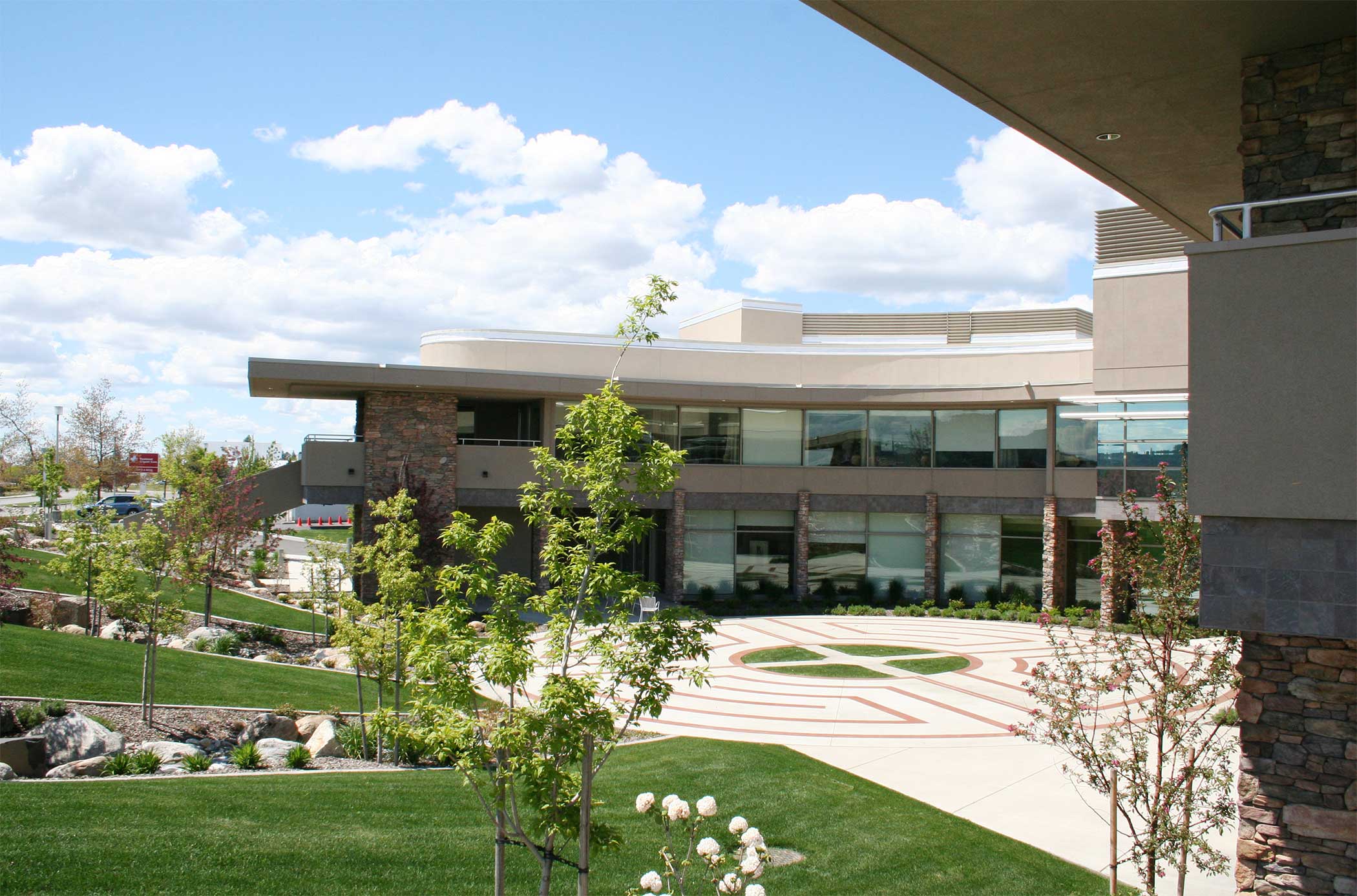In 2008, Kellie Cranmer was a busy mother, wife and realtor living in Bonners Ferry. At just 31 years old, Kellie had never received a mammogram or had reason to, until she discovered a lump while taking a shower.
“At first I was kind of in denial,” she explained. “I thought, ‘That’s weird,’ but didn’t go to the doctor right away. I talked to my mom about it, and of course she told me to go see a doctor.”
Kellie did not have health insurance, and she worried about the cost of a mammogram. Luckily, she heard about a free screening pro- gram, funded through the Susan G. Komen Foundation, from the Panhandle Health District in Bonners Ferry and made an appointment.
“The nurse was concerned and ordered a biopsy,” Kellie said. “I felt like I had to wait forever for the results, but finally four days before Christmas, I got a phone call telling me that it was breast cancer.”
THE JOURNEY BEGINS
Kellie and her family relocated to Coeur d’Alene in 2009, just as she began the long journey of cancer treatment that resulted in two surgeries, five months of chemotherapy and 36 days of radiation treatment.
Kellie’s treatment seemed to work. She lived the next five years of her life cancer-free, spending time with her family and settling back into normal activities and work post- cancer. Then, one night in 2014, Kellie awoke to sharp, shooting pains in her thigh. Every few seconds she experienced spasms and had trouble standing. Thinking she had somehow hurt her leg, Kellie and her daughter headed to the closest urgent care.
“At that point I wasn’t even thinking about cancer,” Kellie said. “Even the doctors I saw thought it might be piriformis syndrome or something else nerve-related. Cancer never came up as a possibility.”
For the next year and a half, Kellie’s family physician helped her to manage her pain. Muscle relaxers and pain medications were part of her regular routine until they could figure out a permanent solution.
SHOCKING RESUL TS
“We finally decided to pursue further imaging to see if it was something beyond nerve pain,” Kellie said. “Sure enough, it showed an abnormality. An MRI confirmed that my breast cancer had come back in my bones.”
Kellie was shocked by her new diagnosis—stage IV bone cancer—but was relieved to have an answer. Her femur and hip were close to fracturing due to the severity of her cancer, and a surgery called left femur stabilization was necessary. In this procedure, a titanium rod is inserted in the left femur and pinned to the hip to help strengthen the bones and prevent fractures. Once her surgery was completed, Kellie was able to return to Kootenai Clinic Cancer Services to begin treatment.
“Even though her breast cancer recurred, she’s still a candidate for treatment,” Kevin Mulvey, M.D., Medical Director of Kootenai Clinic Cancer Services, said. “We opted for hormonal therapy as it would be easier on her body. It works by stopping her body from producing estrogen, which the cancer cells use as a growth factor. The anti-estrogen therapy has been shown to improve survival.”
FINDING THE POSITIVE
“Everyone at Cancer Services is fantastic and helpful; I almost feel a little better when I’m there, because of the staff and care I’ve had,” Kellie said. “My social workers, Jessica in Post Falls and Cyndi in Coeur d’Alene, helped me apply for help through the Kootenai Health Foundation’s Cancer Patient Support Fund and put me in touch with the Patient Advocate Foundation to help offset some of my expenses and prescriptions.”
Despite facing cancer twice before age 40, Kellie continues to smile, focusing on the positive and taking every opportunity to enjoy life.
“It’s crazy being so young and having to go through all this, especially because I have no family history of breast cancer,” she said. “I’m used to it now, but it’s not how I pictured my life; my future. All of my friends, family and co-workers have been so supportive and generous. They help me stay positive and strong. My husband motivates me to go have fun whenever there’s an opportunity.”
Her advice to those who are too young to get annual screenings or who may be facing a new diagnosis?
“Do your breast self-exams—I’m proof that this can happen to any- one,” she said. “And focus on the positive before looking at the negative. Negativity will bring you down before you even get the chance to lift yourself up.”
For ways to help the cancer patient support fund, call the Kootenai Health Foundation at (208) 625-4438 or visit kh.org/foundation. To learn more about Kootenai Clinic Cancer Services, visit kh.org/cancer.



